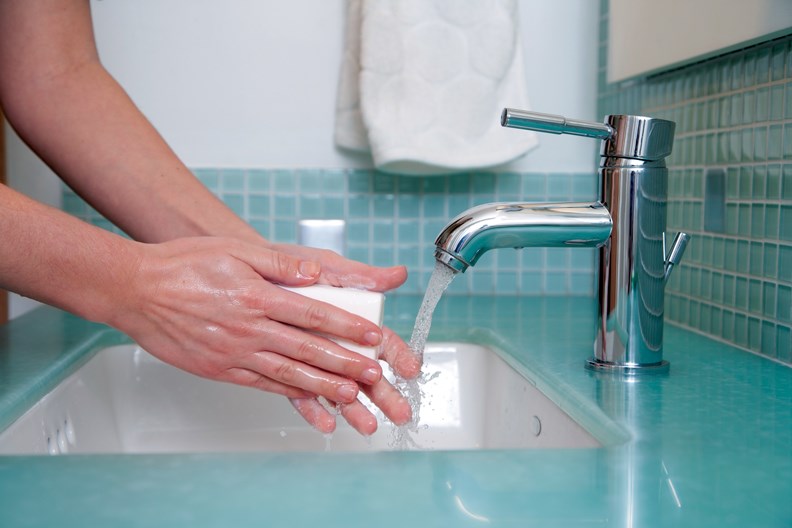Have you noticed that at any health facility and many public buildings, there are hand sanitizer stations right at the door? There is a reason for this, and it has everything to do with protecting others from you, and with keeping you healthy.
Minimizing the chances of spreading germs is especially important at health and long-term care facilities where an infection can be life-threatening to vulnerable patients. For that reason, there are stations available for you to use both when coming in, and when going out. These help reduce the likelihood that a communicable disease such as the flu, cold, measles, mumps or others will be spread. It also helps guard against the spread of so-called superbugs.
Superbugs are a collection of different germs such as methicillin-resistant Staphylococcus aureus (MRSA) and Clostridium difficile (C-difficile) that are very resistant to antibiotics and can make people very sick if they become infected with them. Canadian data suggest that one in 10 patients admitted to hospital will get one; superbugs can also be picked up in the community, outside hospitals. Healthcare-associated infections can also be very serious: each year they cause about 12,000 deaths in Canada.
One of the most effective and simplest ways to reduce the spread of infection is by practising good hand hygiene. That means washing effectively using soap and water, or using an alcohol-based hand sanitizer. Get into the habit of washing your hands regularly throughout the day: before eating and preparing food, after using the bathroom, after coughing, sneezing or using a tissue.
In many situations, using an alcohol-based hand rub is actually better for cleaning your hands. If using a sanitizer, make sure to rub your hands for about 15 to 30 seconds until the alcohol is dry and that you cover all surfaces of your hands and between your fingers.
One of the reasons we have superbugs is that some germs become resistant to the antibiotics we use to control them. Fortunately, unlike other antiseptics and antibiotics, there is no reported or likely resistance to alcohol-based hand rubs. Indeed, the more it is appropriately used, the less antibiotic-resistant bacteria are able to spread.
As a visitor to a healthcare or long-term care facility, preventing the spread of germs coming in or going out is simply a good idea. But what about when interacting with healthcare providers? Patients and people close to them can also play a role in preventing infections; it is completely acceptable to ask the doctor, nurse or lab technician whether they have washed or sanitized their hands before treating you.
Are you starting to think this is a whole lot of trouble? Every time you walk in or out? Balance those few seconds as you walk through the lobby or back out to the car with the trouble from getting the flu, or the guilt of giving it to someone else. Or maybe just think of it as being polite.



